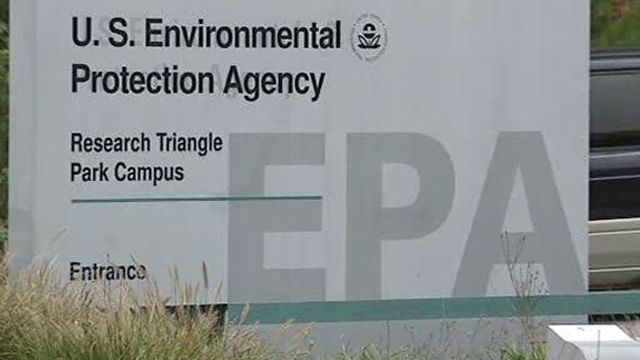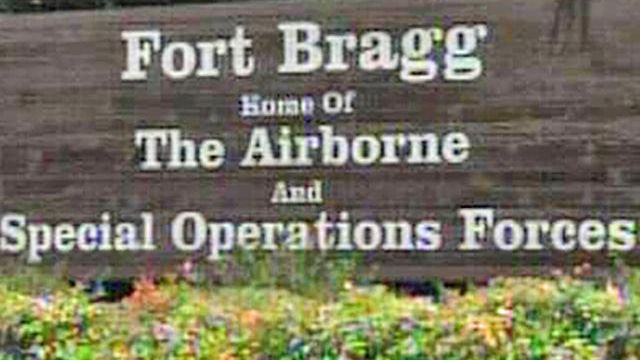Government shutdown threatens paychecks in NC
Thousands of Triangle workers and military families would lose their paychecks if congressional negotiators can't make a deal on the federal budget by midnight Friday.
Posted — UpdatedThe federal government has been operating without a budget since last October, and the latest short-term spending plan ends Friday. If a new budget isn't in place by then, all non-essential functions of the federal government will be shut down.
It is expected that pay to military service members would be suspended. Since Friday is the middle of a pay period, they would get paid for only the first week.
Cori Burkett, who is married to a soldier and has three children, said she also worries about medical care for her father, who's also a veteran and post-traumatic stress syndrome.
She worried that his regular doctor's appointment might be canceled, even though to him, it's an "essential." The Department of Veteran’s Affairs said all medical facilities and clinics across the country will remain fully operational in the event of a shutdown.
Fort Bragg officials expected to get more details about the impact of a shutdown as the deadline approached.
An estimated 3,000 employees and contractors for the U.S. Environmental Protection Agency who are based in the Research Triangle Park wouldn't be able to work on Monday. Employees say they've been told they can't come into work even if they want to and aren't supposed to work from home.
"What I'm hearing is they want to work. They really want to work. They believe in the mission," EPA union leader Silvia Saracco said.
Only EPA employees who perform vital functions, such as security and feeding lab animals, would be allowed to work.
The Army Corps on Engineers, which maintains levels at Falls and Jordan lakes, would also be affected. Only one manager would be assigned to each lake, and the visitors' center at Falls Lake would be closed.
Federal courts in North Carolina, though, would continue to operate. The judiciary has a 10-day funding cushion, ensuring that federal courts could operate for that long without interruption.
What stops in a government shutdown
- About 800,000 workers nationwide are furloughed without pay
Essential services continue
- U.S. Postal Service will deliver mail
- VA Hospitals and clinics will remain fully staffed and operate as usual
- Air traffic controllers would stay on the job
- Unemployment benefits will continue
- Social Security checks will continue
- NASA operations continue, including the planned launch of shuttles April 29 and June 28
- Medicare claims will be paid to patients
- Commissaries will remail open to military personnel, retirees and their families
Members of Congress would still get paid during a government shutdown, but Sens. Richard Burr and Kay Hagan and Reps. Renee Ellmers, David Price and Mike McIntyre have said they will return their paychecks.
Hagan said she would donate her pay to a veterans' charity, and McIntyre said he would give his to a scholarship fund he and his wife started for students in his district.
Republican Rep. Walter Jones said the matter of pay should be decided only if an agreement can't be reached.
Hagan and McIntyre both said they have voted for measures to suspect congressional paychecks during a shutdown, and Ellmers supported a bill to ensure that soldiers would be paid. None of those bills have become law.
"You know we got over 120,000 soldiers in North Carolina. We have got to be sure that whatever we do, we not allow a government shutdown without first taking care of assuring our military men and women and their families, that they continue receiving their pay," Hagan told WRAL News on Friday.
Democratic Rep. Brad Miller said that although he's voted for measures to cut congressional paychecks, he will continue to accept his pay because he has a constitutional duty to continue serving.
WRAL News has not received a response from Democratic Rep. G.K. Butterfield.
Each member of Congress will decide whether his or her staff stays on during a shutdown. Price and Rep. Larry Kissel (D-Raleigh) both said they would keep staffers available to answer questions and help constituents. While Kissel's staff will work, they will be unpaid during the shutdown, spokesman Christopher Shuler said.
Peace College political science professor David McLennan thinks it will take a shutdown for much of the public to see the impact of the federal government.
“People are going to be very angry. I don’t think it’s anger over the past couple of years about the size of the government. I think it’s that government is not delivering on its promises,” he said.
• Credits
Copyright 2024 by Capitol Broadcasting Company. All rights reserved. This material may not be published, broadcast, rewritten or redistributed.






